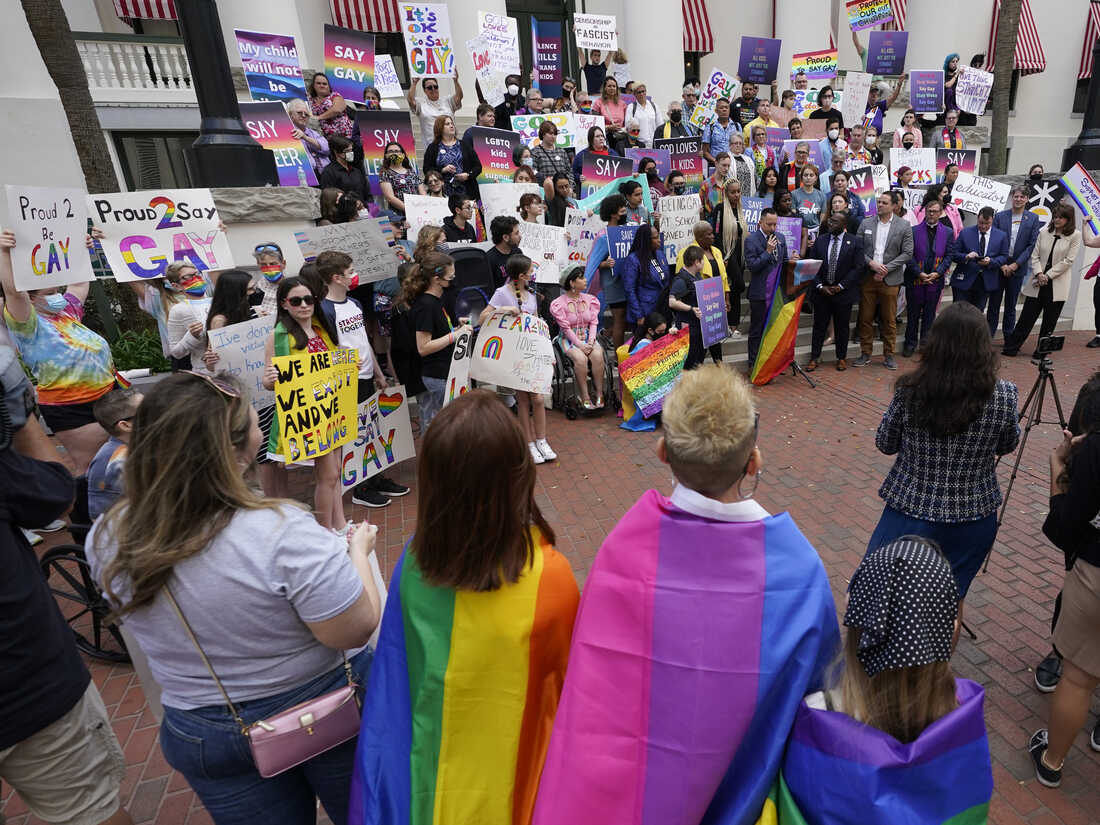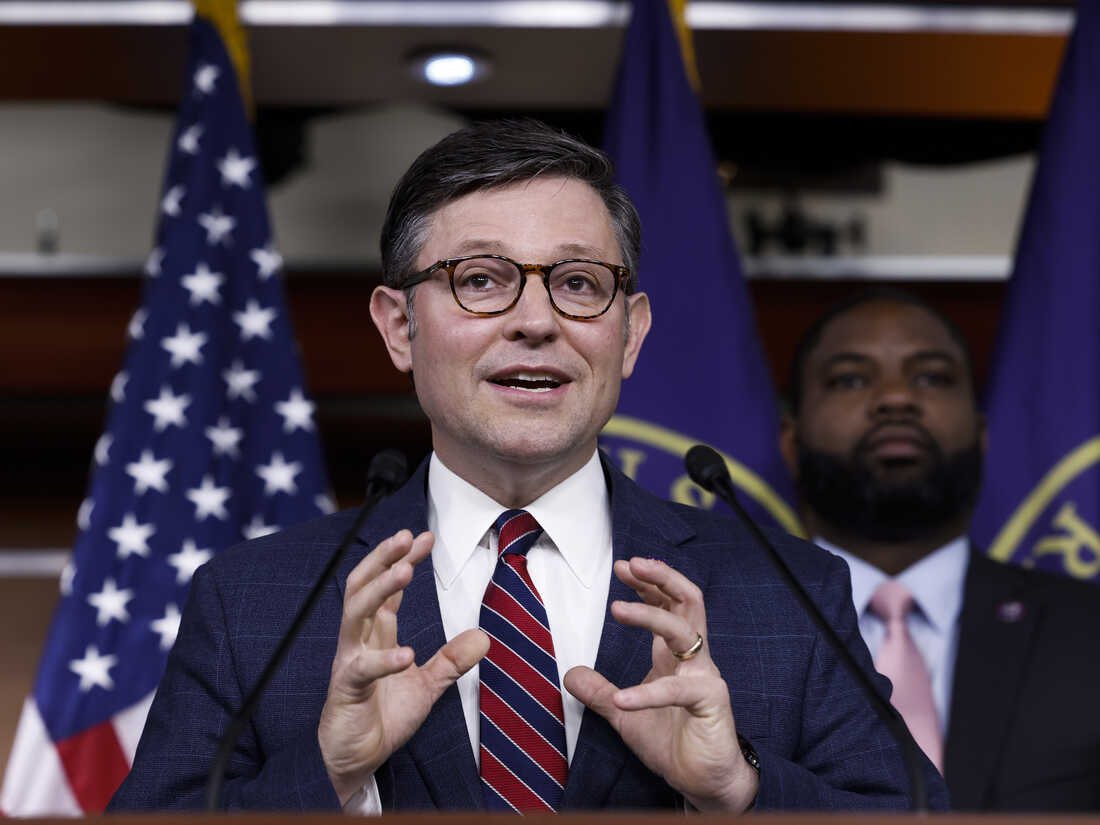What’s in the so-called ‘Don’t Say Gay’ bill that could impact the whole country

Demonstrators gather on the steps of the Florida Historic Capitol Museum in front of the Florida State Capitol in March in Tallahassee, Fla, protesting what opponents call the “Don’t Say Gay” bill.
Wilfredo Lee/AP
hide caption
toggle caption
Wilfredo Lee/AP

Demonstrators gather on the steps of the Florida Historic Capitol Museum in front of the Florida State Capitol in March in Tallahassee, Fla, protesting what opponents call the “Don’t Say Gay” bill.
Wilfredo Lee/AP
House Republicans have introduced legislation that some critics are describing as a national “Don’t Say Gay” bill – inspired by the controversial Florida law that bans instruction on gender identity and sexual orientation in kindergarten through third grade classes.
If the federal bill were to become law, which is unlikely in the current Congress, its effects could be far more sweeping, affecting not just instruction in schools, but also events and literature at any federally-funded institution.
Here’s what’s in the bill – and what people are saying about it.
The bill’s language is broad and consequential
The measure was introduced on Tuesday by Rep. Mike Johnson, R-La., and co-sponsored by 32 other Republicans.
“The Democrat Party and their cultural allies are on a misguided crusade to immerse young children in sexual imagery and radical gender ideology,” Johnson said in a statement, calling the bill “commonsense.”
The bill, called the “Stop the Sexualization of Children Act,” aims “To prohibit the use of Federal funds to develop, implement, facilitate, or fund any sexually-oriented program, event, or literature for children under the age of 10, and for other purposes.”
The language in the proposed legislation lumps together topics of sexual orientation and gender identity, with sexual content such as pornography and stripping.
It would prohibit federal funds from being used to support any “sexually-oriented” programs, events, and literature; ban federal facilities from hosting or promoting such events or literature; and allow parents and guardians to sue government officials, agencies and private entities if a child under 10 is “exposed” to such materials.
The bill complains that some school districts have implemented sex ed programming for kids under 10, and that “[m]any newly implemented sexual education curriculums encourage discussion of sexuality, sexual orientation, transgenderism, and gender ideology as early as kindergarten.” It also calls out events such as drag queen story hours in libraries, which it describes as “sexually-oriented.”

…
Read More: What’s in the so-called ‘Don’t Say Gay’ bill that could impact the whole country
